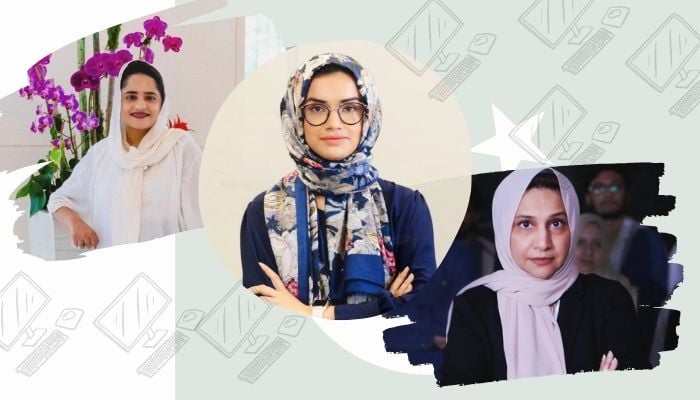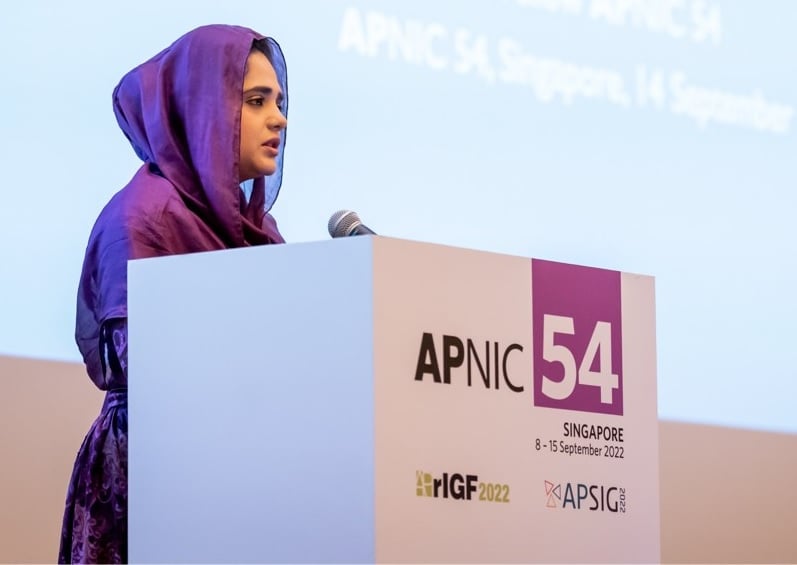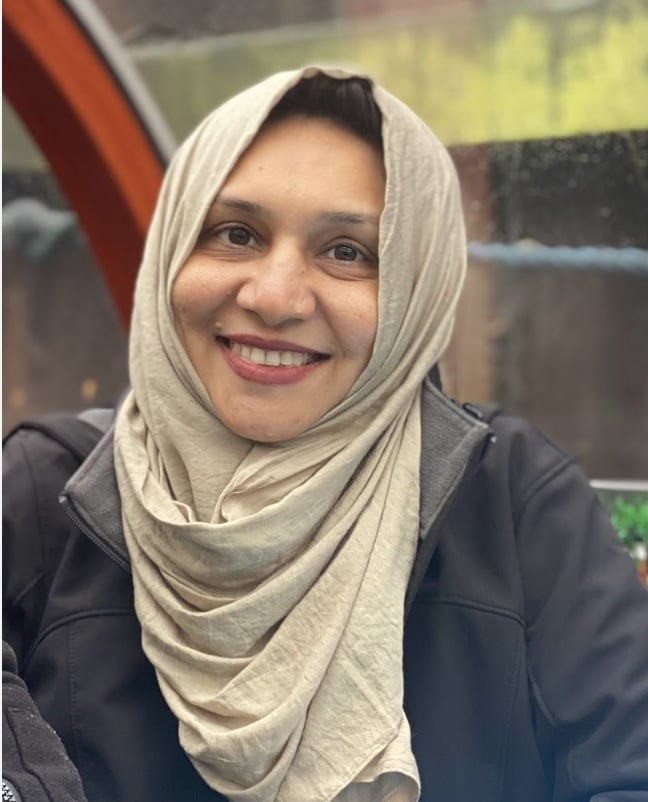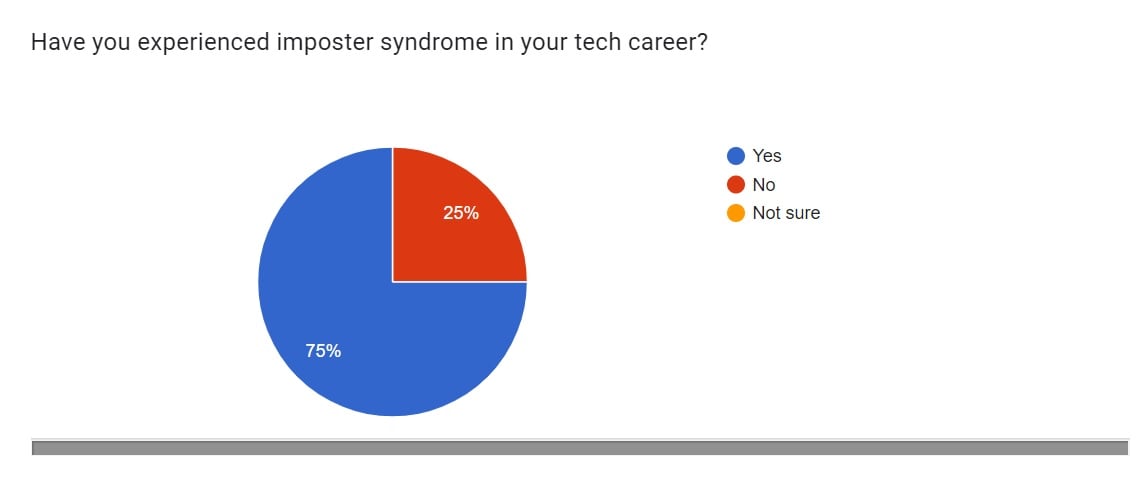
Until a few years ago, you wouldn't see a lot of successful women from Pakistan in the technology sector. Yes, some young girls would dare to choose CS and software engineering, but very few would join the forces, let alone pick the entrepreneurial side.
The fact that our computer science classrooms in engineering universities to this day are heavily male-dominated says enough. It is important to note here that globally, women hold about 26.7% of tech-related jobs, but they face issues like unequal pay and lack of representation in higher roles. Understandably, a global problem would exist in its worse form in a developing country like Pakistan where access to education is no less than a joke.
However, it is refreshing to see that in the past couple of years, the situation has improved. I believe COVID might have something to do with it. With online education on the rise and a gazillion certifications being released on the internet, people slowly understood multiple important things, one being how easily education could be accessed outside universities, another being how it could be cheaper than college degrees and the last being how you were not and should not be limited to the field you initially chose i.e. the transition to tech became smoother.
Tech education became indispensable. And in an economy like Pakistan, where earning US dollars is every other person's dream, people started to go for skillsets that Uncle Sam and the rest of the developed world would require. Specifically for women, these online opportunities fought several challenges. No more travel expenses and catcalls on the way. No more justifying every step you're taking to every single relative in the family and finally getting to prove yourself.
But there is a group of women that we have to credit for this rising trend. This group consists of those women who rose in the field when it was not encouraged as such. They stood strong and today many girls, including me, can look up to them and feel further motivated to dip our feet into tech.
Take Ayesha Iftikhar, for example, a cybersecurity researcher who hails from Balochistan. Iftikhar graduated from Balochistan University of Information Technology, Engineering and Management Sciences and is now pursuing her PhD at both the University of Bristol and the University of Bath in the UK.
Gadinsider asked her what encouraged her to choose computer science. "Unfortunately, there was no proper guideline when I had to choose between biology and computer in ninth grade," she said. "I liked computer science. I was interested in technical concepts, mathematical stuff, and numericals," she continued, adding that there was no encouragement and that the field was considered the last option for girls.

Sharing her experiene of working in a tech-related field in Pakistan, Iftikhar said: "In case of men, they actually try to stop you. I have observed that when they see a woman doing good in the field of tech, since I am surrounded mostly by men, they feel intimidated and feel like you are dominating them."
She added that in such a case, they try to make things difficult for you and hinder your progress.
Iftikhar clarified that she was not generalising as she had, in her journey, met some good men as well who would encourage the girls around them. She said that while she enjoys working in the field despite all the challenges, she acknowledges that women have limited opportunities.
Unfortunately, Shamim Rajani from Karachi, who is empowering women through vocational IT and business training at CodeGirls, had something similar to say. "A bias toward a woman in a leadership role is common, not always but generally. I find it humiliating when men want women to just fill up the quota seat," Rajani stated.
"I understand the law is there therefore more women become employable or reach boardrooms, however, sometimes Pakistani men tend to look down upon them. This discomforts me."
It is great to know though that despite these obstacles, Rajani has managed to inspire many over the years. While she found female role models in tech much later in her career, with CodeGirls bridging the gender gap early on, we can be nothing but hopeful.

Melting our hearts, she added that she was proud of breaking barriers and carving her own path in a field not traditionally seen as welcoming to women.
"From a humble background and with not a single entrepreneur in my journey, I think I have come a long way. My true motivation today comes from seeing more women entering tech and knowing I may have played a small role in inspiring them."
'Mentorship matters'
Gadinsider also took comments from several other young girls in the field. A common theme we noticed was the word "guidance". A product designer said that "mentorship matters". This made me wonder if there are any such opportunities out there and if some work is being done in Pakistan.
We spoke to Ayesha Zaman, another inspiring figure. Zaman is the founder of Skills ToDo and like Rajani, is an example of not just being part of the workforce but taking the entrepreneurial route. She is also a wife and a mother.

Interestingly, Zaman was not a Computer Science student herself but is right now the co-founder of Pakistan Tech Forum. This breaks the myth where young people tend to limit themselves to a certain college degree and believe that is the only way to win.
"I came from a very humble background where I had to wait till my university time to be able to have a personal computer at home," she shared.
Gadinsider asked her about initiatives in Pakistan to which she said: "I'm proud to share that I've been a key role player in two initiatives. The first one is eRozgaar programme by the Punjab Information Technology Board which started out in 2016 and has touched the lives of more than 50,000 university graduates. We had a prominent participation from women across 40 cities of Punjab and there are many heartwarming stories where women took the lead to support their families financially, in the remote areas."
"Second was the programme by Meta, formerly Facebook, named SheMeansBusiness that started out in 2018 and I was fortunate to be one of the lead trainers in Pakistan. We were able to graduate 3000+ women running small businesses to learn how they can use social media to promote their businesses for free."
"There are other large-scale programmes like DigiSkills, iSkills and other initiatives that cater a prominent number of women in terms of enrolments. Further, there are opportunities for women in terms of raising investments for their startups form incubators like Plan9, NICs, NICAT, LCE and other emerging entities," Zaman shared.
Adding to the discussion around initiatives, Iftikhar emphasised the importance of the government's role. "Unfortunately, I don't see any seriousness or efforts from the government."
"To be fair, we have a lot of women now who study STEM and CS [...] and these women have a lot of potential when it comes to contributing to the economy of Pakistan too."
Advice for young women choosing tech
Interestingly, all the women that Gadinsider sampled to collect data on their experiences recommended going for a career in tech.
"Don't be intimated," Rajani, who is also the COO of Genetech Solutions advised. Zaman said something along similar lines, asking women to "leave imposter syndrome behind".

Both women stressed the significance of networking. "Go out, meet like-minded women and professionals in the industry networking events and get exposure," Zaman said, adding that "exposure, learning and critical problem solving will put you on steroids for success."
Zaman also encouraged women to focus on experience rather than lucrative salaries at the beginning of their careers.
Iftikhar pointed out how rapidly the industry is changing. "If you want to work in the tech industry, be very open and flexible as it changes quite fast unlike other fields."
All three superwomen agreed that upskilling and staying updated about the trends was crucial.
A future forged in technology
Looking ahead, the future of women in tech in Pakistan is not just about increasing numbers but about creating an environment where women can thrive, lead, and innovate. This means building supportive networks, providing mentorship, and ensuring access to resources and opportunities for women across the country.
The rise of women in tech in Pakistan is a story of breaking barriers, fostering resilience, and unlocking potential. Speaking to these women gave me lots of hope. Looking around might feel a bit dark but zooming out and witnessing actual stories shows a different story.
As Zaman said: "In a nutshell, there is more hope for women in tech today than there was ever before."
















